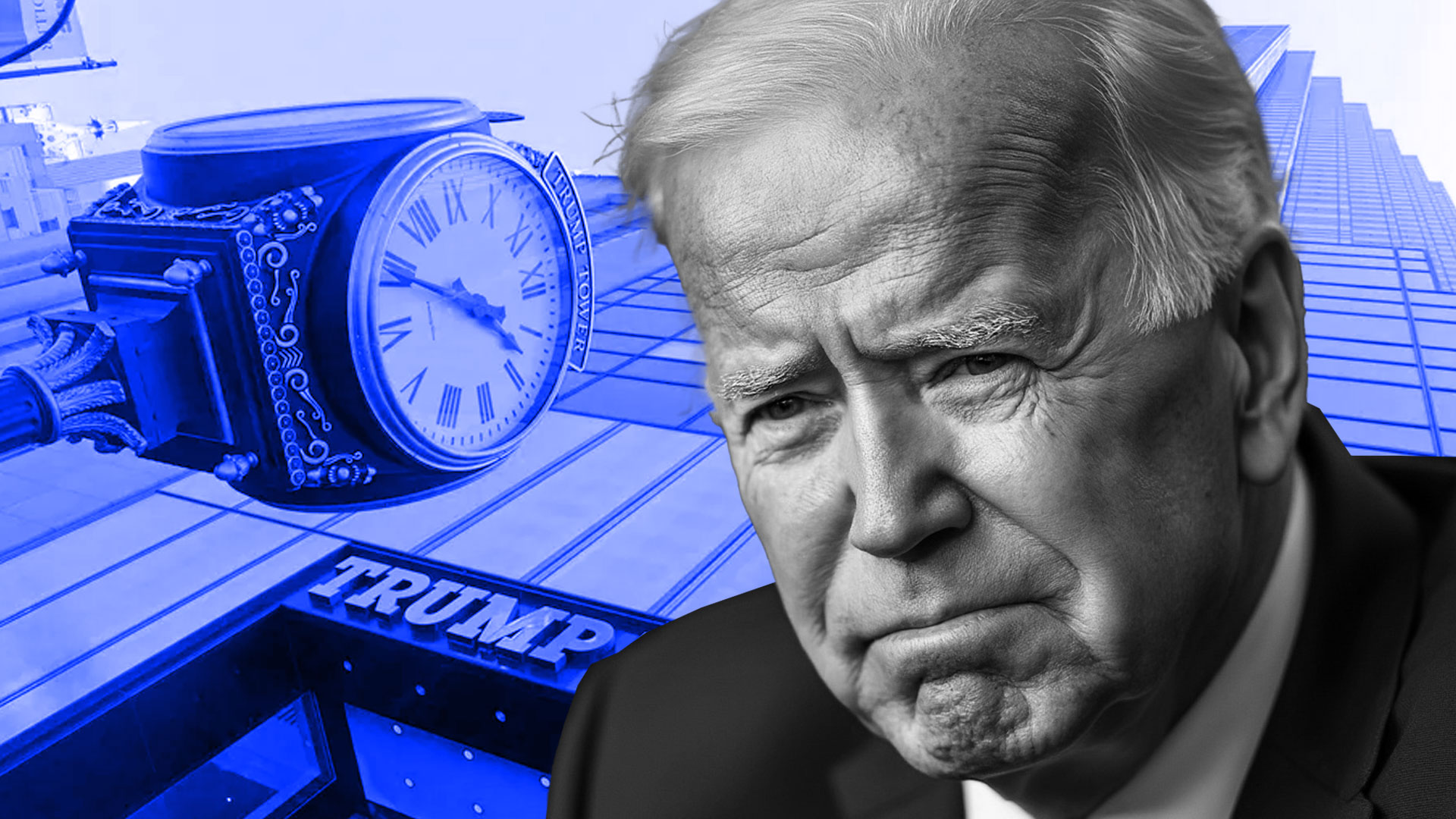Heredia, Costa Rica – In a critical and unexpected turn of events, President Joe Biden’s administration has failed to secure a second term for the Democratic Party. This electoral defeat not only marks a significant blow to the Democratic leadership but has also led to the loss of Kamala Harris in her presidential bid and the re-election of Donald Trump. This outcome underscores widespread dissatisfaction with Biden’s presidency and highlights key factors that contributed to waning public support for the administration and, by extension, its chosen successor.
The failure of Joe Biden’s administration to resonate with voters on pressing economic and social issues has now placed the Democratic Party at a crossroads. The challenges faced by Biden during his tenure, including economic struggles, foreign policy setbacks, and social discontent, proved decisive in shaping voter behavior and ultimately led to the party’s defeat in 2024. The outcome is a stark reminder of the difficulties in maintaining public confidence amid multifaceted national crises.
Economic Challenges and Public Discontent
Economic conditions during Joe Biden’s presidency were a significant factor in his administration’s failure to secure a second term. Although the president came into office with the promise of revitalizing the economy post-pandemic, the efforts were hindered by rising inflation and sluggish economic growth. While initial stimulus packages and relief measures provided temporary support, these were soon overshadowed by price hikes in essential goods and fuel that outpaced wage growth. Many American households found themselves stretched thin, leading to increased frustration and disillusionment with Biden’s economic policies.
Under Biden, unemployment rates saw improvement, and significant job creation was reported, but this did little to curb the sense of financial insecurity felt by many. Inflation became a dominant concern for voters, with economic data showing that price increases were eroding the buying power of American families. The perception that Biden’s administration was not effectively managing inflation and other economic challenges contributed greatly to a decline in public trust.
Furthermore, economic stagnation disproportionately affected key voting blocs, including working-class citizens and middle-income families. These groups, once viewed as potential bastions of Democratic support, increasingly turned their attention to alternatives that promised more robust and immediate solutions. This shift in voter sentiment played a decisive role in undermining Kamala Harris’s campaign, as she was perceived as a continuation of Biden’s economic and social policies.
Policy Missteps and Political Divides
Joe Biden’s administration struggled with internal divisions within the Democratic Party that hampered its ability to present a unified front. The conflict between the progressive and moderate wings often translated into legislative gridlock, with high-profile bills either stalling or passing in compromised forms. This perceived lack of cohesion weakened the administration’s ability to deliver on its more ambitious promises, such as comprehensive climate change initiatives, student debt relief, and expansive healthcare reforms.
The withdrawal from Afghanistan in 2021 also left a lasting impact on public perception. The abrupt nature of the exit, coupled with chaotic scenes that played out in the media, raised serious questions about the administration’s foreign policy competency. This, in turn, had a ripple effect on voter confidence in Biden’s leadership and, by extension, trust in Kamala Harris’s capability to continue in his footsteps.
Moreover, social and cultural issues that defined Biden’s term, such as debates over police reform, gun control, and immigration policies, further fueled divisions. While Biden’s administration advocated for progressive reforms, it often struggled to effectively communicate and implement them in a way that garnered bipartisan or even widespread public support. The political stalemate and perceived inability to deliver transformative change left many voters disillusioned, impacting Harris’s campaign as she was seen as closely tied to these failures.
Kamala Harris’s Candidacy: A Continuation of Biden’s Policies
Kamala Harris’s presidential bid was framed as a continuation of the Biden administration’s legacy. While she entered the race with significant credentials, being the first female and person of color to serve as vice president, her campaign failed to inspire the confidence needed to carry the party to victory. Harris faced a challenging task of defending an administration marked by mixed results, which resonated poorly with voters seeking change.
Harris’s platform emphasized many of the same priorities as Biden’s, including social equity, climate action, and economic reform. However, the association with Biden’s presidency became a double-edged sword. While she retained support among key Democratic bases, such as young progressives and minority voters, her appeal among more moderate and independent voters diminished. These groups were critical in swing states where elections are often won or lost.
Polls leading up to the election indicated that public sentiment around the Biden administration’s economic and foreign policies significantly impacted Harris’s ability to broaden her support base. The perception that Harris would continue along the same policy trajectory contributed to her defeat, as many voters opted for a change that promised stronger economic management and more assertive leadership.
Donald Trump’s Return: Capitalizing on Public Discontent
The 2024 election saw the resurgence of Donald Trump, who skillfully leveraged public discontent with the Biden administration to secure a return to the presidency. Trump’s campaign was marked by a sharp critique of Biden’s handling of the economy and foreign policy, presenting himself as the candidate who could restore economic stability and national pride. His promises to reduce inflation, enhance border security, and revitalize American industry resonated with voters who felt left behind during the Biden years.
Trump’s strategy included direct appeals to working-class Americans and key swing state constituencies. By contrasting his assertive approach with Biden’s more moderate tone, Trump was able to galvanize support among voters who prioritized economic recovery and national security. His messaging was straightforward and capitalized on fears and frustrations over inflation, crime rates, and immigration challenges—issues that Biden’s administration struggled to manage effectively.
The election results showed that Trump’s approach, although polarizing, found success in framing the 2024 vote as a referendum on Biden’s governance. The endorsement of strong economic and security policies attracted those who felt that the administration’s initiatives were insufficient in addressing their concerns.
Reactions Within the Democratic Party
The outcome of the 2024 election has sent shockwaves through the Democratic Party, prompting introspection and calls for significant changes. The defeat of Joe Biden’s administration has sparked debates over the future direction of the party, especially regarding how to reconcile progressive and moderate policy aims to appeal to a broader electorate. The results underscored the limitations of running a campaign that leaned heavily on defending an incumbent administration’s record during times of economic uncertainty.
Party leaders and strategists are now calling for a reassessment of how to communicate Democratic values effectively while addressing voters’ practical concerns. Some members have pointed out that while Biden and Harris championed long-term goals, such as environmental sustainability and social justice, they did not sufficiently address the immediate economic issues that mattered most to a majority of voters.
A Period of Reflection and Strategic Redefinition
Joe Biden’s legacy is now under scrutiny as the Democratic Party seeks to rebuild and redefine itself. His administration’s inability to secure a second term has highlighted critical areas that the party must address to regain voter confidence. Economic policies will likely take center stage in future strategic discussions, with a push for more immediate solutions that address inflation and job security.
Additionally, the party will need to focus on leadership that bridges the divide between progressives and moderates to avoid the internal fractures that weakened its campaigns. The rise and fall of Biden’s administration demonstrate that balancing ambitious policy goals with actionable, voter-focused solutions is key to sustaining public support.
International Implications of Biden’s Defeat
The defeat of Joe Biden’s administration and the election of Donald Trump will have substantial implications for international relations. Biden’s presidency was marked by efforts to re-engage with global partners and re-establish the U.S. as a leader in multilateral agreements, particularly in addressing climate change and trade policies. However, Trump’s return is expected to shift U.S. foreign policy toward more unilateral decision-making and a focus on “America First” strategies.
Allies and rivals alike are watching closely as the U.S. transitions to new leadership. European nations, which had valued Biden’s commitment to NATO and international cooperation, are preparing for a potential pivot in transatlantic relations. In contrast, nations that were at odds with Biden’s policies may see an opportunity for more favorable engagement under Trump’s administration.
The End of an Era for Joe Biden
Joe Biden’s administration, once seen as a beacon of hope and stability following the tumultuous years before, has come to a close with significant electoral defeat. This loss, compounded by Kamala Harris’s failure to secure the presidency, underscores a complex legacy marked by achievements in public health and social reform but overshadowed by economic struggles and policy challenges. The election results serve as a stark reflection of voter sentiment and the demands for leadership that addresses immediate concerns with clarity and confidence.
The Democratic Party, facing internal reassessment, must now chart a path forward that learns from Biden’s missteps, adapts to a changing electorate, and rebuilds trust with the American people. The next chapter for Joe Biden will be watched with interest, as his influence and the lessons from his presidency continue to shape the political dialogue in the United States.
For further information, visit joebiden.com
About Joe Biden:
Joe Biden is an American politician who served as the 46th president of the United States from 2021 to 2025. His career spans decades in public service, including time as vice president under President Barack Obama and over 35 years as a U.S. senator from Delaware. Known for his dedication to public policy, economic recovery efforts, and advocacy for social justice, Biden’s presidency was marked by both notable achievements and significant challenges.









